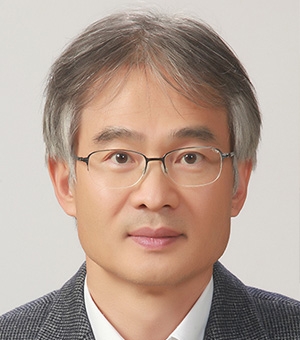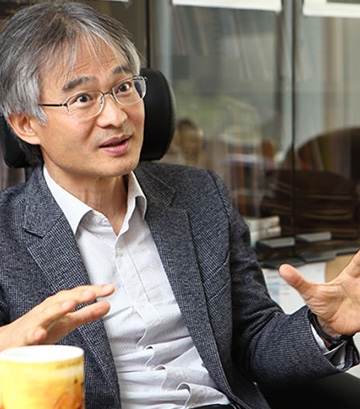Professor
Kaang, Bong-Kiun
Research
Molecular Biology
Neurobiology
Brain is the most complex structure in the universe, yet defining us who we are. We are interested in revealing the mysteries of the brain function at the molecular and cellular level. Especially, we are interested in how memory is stored and retrieved. In this regard, our research focuses on molecular events underlying synaptic plasticity. Most synapses are known to be plastic and readily modified by various environmental and learning stimuli. A change in synaptic efficacy leads to a functional modification of neural circuit to represent new information as a result of learning. Importantly, altered synaptic structure and function are also implicated in the pathogenesis of brain disorders such as autism, schizophrenia, and Alzheimer disease and so on. We use cellular, molecular, electrical, optogenetic and behavioral techniques to understand the mechanisms underlying memory and higher cognitive brain functions in normal and transgenic knockout animal models.
Education/Career
Education
- - 1989 - 1992 Ph.D. : Columbia University
- - 1984 - 1986 Master : Seoul National University
- - 1980 - 1984 Bachelor : Seoul National University
Career
- - 2012 - present National Honor Scientist(NRF)
- - 2009.9 - present Professor, Brain Cognitive Sciences, Seoul National University
- - 2009.9 - present Professor, Concurrent positions at School of Biological Sciences
- - 2004 - 2009 Professor, School of Biological Sciences
- - 1998 - 2004 Associate Professor, School of Biological Sciences
- - 1994 - 1998 Assistant Professor, Institute of Molecular Biology and Genetics
- - 1992 - 1994 Post Doctorate, Columbia University Neurobiology Research Center
Publications
- Won H, Lee HR, Gee HY, Mah W, Kim JI, Lee J, Ha S, Chung C, Jung ES, Cho YS, Park SG, Lee JS, Lee K, Kim D, Bae YC, Kaang BK*, Lee MG*, Kim E* (2012) Autistic-like social behaviour in Shank2-mutant mice improved by restoring NMDA receptor function. Nature 486:261-265
- Lee SH, Kwak C, Shim J, Kim JE, Choi SL, Kim HF, Jang DJ, Lee JA, Lee K, Lee CH, Lee YD, Miniaci MC, Bailey CH, Kandel ER, Kaang BK.* (2012) A cellular model of memory reconsolidation involves reactivation-induced destabilization and restabilization at the sensorimotor synapse in Aplysia. Proc Natl Acad Sci USA. 109:14200-14205
- Kim JI, Lee HR, Sim SE, Baek J, Yu NK , Choi JH , Ko HG , Lee YS, Park SW , Kwak C, Ahn SJ, Choi SY, Kim H, Kim KH, Backx PH, Bradley CA, Kim E, Jang DJ, Lee K, Kim SJ, Zhuo M, Collingridge GL, Kaang BK.* (2011) PI3Kγ is required for NMDAR-dependent long-term depression and behavioral flexibility. Nat Neurosci. 14:1447-1454
- Li XY, Ko HG, Chen T, Descalzi G, Koga K, Wang H, Kim SS, Shang Y, Kwak C, Park SW, Shim J, Lee K, Collingridge GL, Kaang BK*, Zhuo M.* (2010) Alleviating neuropathic pain hypersensitivity by inhibiting PKMζ in the anterior cingulate cortex. Science 330:1400-1404
- Lee SH, Choi JH, Lee N, Lee HR, Kim JI, Yu NK, Choi SL, Lee SH, Kim H, Kaang BK (2008) Synaptic protein degradation underlies destabilization of retrieved fear memory. Science 319:1253-1259
- Lee SH, Lim CS, Park H, Lee JA, Han JH, Kim H, Cheang YH, Lee SH, Lee YS, Ko HG, Jang DH, Kim H, Miniaci MC, Bartsch D, Kim E, Bailey CH, Kandel ER, Kaang BK.*. Nuclear translocation of CAMassociated protein activates transcription for long-term facilitation in Aplysia. Cell. 2007. 129:801-812



